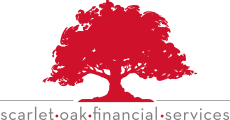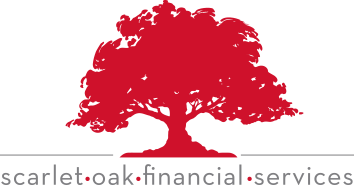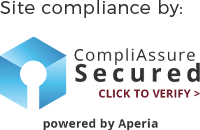Picture this- you feel financially stable. This big, amorphous thing that you call your financial life feels manageable.
You:
- have utilized and automated your bank’s savings account, maybe branched into a high-interest account like a High-Yield account or Money Market account to ensure that your money is hard at work for you.
- have your debt in a manageable state and understand how to utilize it to help your finances, not hinder them.
- have been monitoring your credit regularly.
- have benefited from paying for a crisis from your emergency fund and not a high-interest credit card.
- have taken advantage of the free money offered by your employer’s matching contribution on your 401k.
- feel good and financial stress isn’t your major worry these days.
But, you feel like there is more for you to do to ensure that you are setting yourself up for financial success. You’d like to expand your savings strategy. Here is our deep dive into three alternative types of savings accounts:
Certificate of Deposit Accounts
Certificate of Deposit Accounts are created through banks and credit unions, where you deposit a lump sum for a predetermined amount of time. Fortunately, this set period allows the bank to give you premium interest rates. These are ideal for people who want a guaranteed return on their money and don’t need it for a set time.
Accounts that fall in this category:
-
-
- Traditional CD
- Bump-up CD
- Step-up CD
- Liquid (or no-penalty) CD
- Zero-coupon CD
- Callable CD
- Brokered CD
- High-yield CD
- Jumbo CD
- IRA CD
- Yankee CD
- Add-on CD
- Foreign currency CD
-
Pros
-
-
- The interest is often higher and doesn’t fluctuate for the term period. The bank can’t give you a lower rate at the end of the term than specified in your agreement, unlike the High Yield accounts’ rate, which rises and falls.
- This money is safely insured by Federal Deposit Insurance Corporation (FDIC) up to $250,000. Some CDs aren’t insured because they are investment accounts, such as Brokered CDs or are issued by banks outside the US, like Yankee CDs. If being FDIC insured is crucial for you to verify before you set up your account.
- There are usually no maintenance fees.
-
Cons
-
-
- You will have to pay a penalty if you choose to withdraw money before the account’s maturity date.
- There can be lower rates for shorter-term CDs than some High Yield Accounts, so you will need to do your research.
- The opening deposits tend to be higher.
- CDs have a short window at the time of maturity for the funds to be withdrawn. If they aren’t, then the funds are put into a new CD with the same term time. Though this isn’t necessarily a bad thing, it is essential to understand term agreement and be someone who actively pays attention to your statements.
-
Specialty Savings Accounts
Specialty Savings Accounts are designed to save for a specific goal. They can sometimes offer tax deductions or special incentives like various states matching money for 529 plan contributions. They are ideal for people who want a clear delineation between your money and your specific goals.
Accounts fall into this category:
-
-
- Health Savings Accounts (HSAs)
- Individual Retirement Accounts (IRAs)
- Roth Individual Retirement Accounts (Roth IRAs)
- 529 college savings accounts
- Custodial savings accounts
- Student savings accounts
- Home down payment savings accounts
-
Pros
-
-
- There can be tax incentives.
- They earn interest, some at higher rates than other savings accounts.
- They help designate money for life events which sometimes helps create better long-term financial goals because they are specific.
- Unlike most savings accounts where you pay taxes on the interest you earn yearly; IRAs and Roth IRAs allow the interest on savings to accrue tax-deferred. With Roth IRAs, you pay taxes on the income before it enters the account, and with IRAs, you pay taxes when you use the money at retirement.
-
Cons
-
-
- There are often rules, penalties, and taxes with withdrawing the money for anything other than the designated reasons the account was created.
- There is a wide variety about what these accounts are: some are savings accounts, and some investment accounts like IRAs and some 529s, the FDIC does not insure investment accounts.
- There can be restrictions on who can have the account, depending on the type.
-
Cash Management Accounts
Cash Management Accounts are accounts that are a hybrid of a checking, savings, and investment account. They are offered primarily by brokerage firms and Robo-advisers to secure large amounts of money that you haven’t yet invested or want to keep liquid while also allowing you to earn interest. By cash sweeping to multiple third-party banks, you are insured FDIC coverage of $250,000 for each institution. These are ideal for people that have a large amount of cash that needs protection and liquidity.
Pros
-
-
- Accounts often have debit, checks, and online banking services that make using the money easy, flexible, and quick.
- Since these accounts are through brokerage companies, it is easy to invest from them.
- They can have low or no fees.
- This money is safely insured by FDIC up to $250,000 for each institution your money swept to; if your money goes to 5 third-party banks, you have $1.25 million worth of coverage.
- You earn interest and keep funds liquid. There isn’t a need to wait for stocks to be sold or a lock-in period where you can’t access your money without penalty.
-
Cons
-
-
- Though your interest rate is higher than a traditional savings account, it might not be as high as other savings accounts. Also, investment accounts may yield better returns long term.
- They are not geared toward people who don’t need to protect large amounts of assets.
- These accounts are often online-only, so you must be comfortable navigating without assistance from a brick-and-mortar location.
- There are often high minimum balances required.
- Though they have checks and debit cards, they might not have some of the same helpful services a traditional checking account has.
-
As you feel more financially stable, expanding your savings strategy to different accounts with different benefits might make a lot of sense. Remember that you have a variety of goals and needs, and you will need various tools to succeed. If you’d like to explore a more personal look into your financial life, Scarlet Oak Financial Services can be reached at 800.871.1219 or contact us here.
Sources
- https://www.investor.gov/sites/investorgov/files/2019-02/Saving-and-Investing.pdf
- https://www.forbes.com/advisor/banking/types-of-savings-accounts/
- https://www.investopedia.com/personal-finance/6-different-types-checking-accounts/
- https://www.banks.com/articles/banking/savings-accounts/savings-accounts-advantages-disadvantages/
- https://www.savingforcollege.com/article/states-that-offer-529-plan-grant-programs
- https://www.businessinsider.com/personal-finance/types-of-savings-accounts#frequently-asked-questions-about-savings-accounts
- https://www.investopedia.com/terms/c/certificateofdeposit.asp
- https://www.bankrate.com/banking/what-is-a-cash-management-account/
- https://www.forbes.com/advisor/banking/best-cash-management-accounts/
- https://www.investopedia.com/how-to-invest-with-cds-4795661
- https://www.investopedia.com/ask/answers/052515/how-savings-account-taxed.asp
This material has been prepared for informational purposes.



